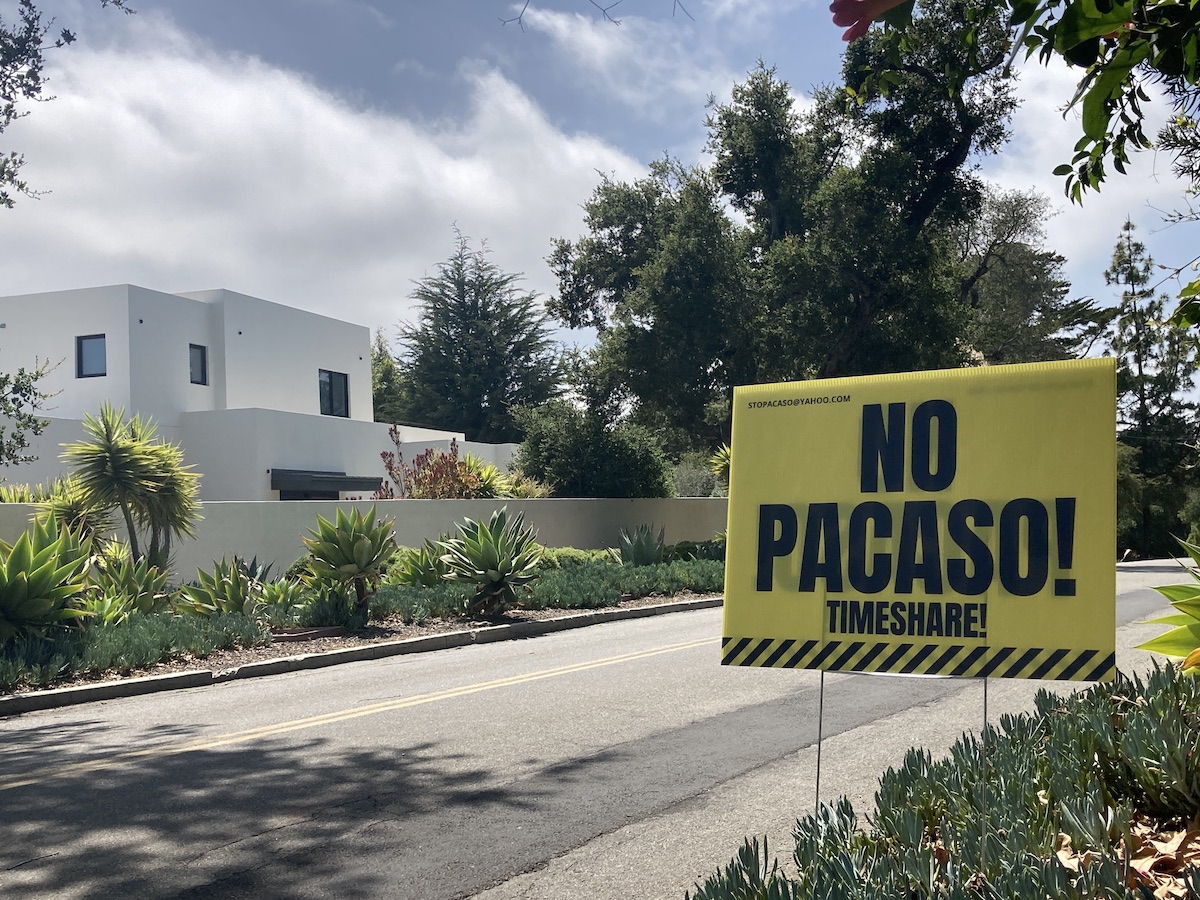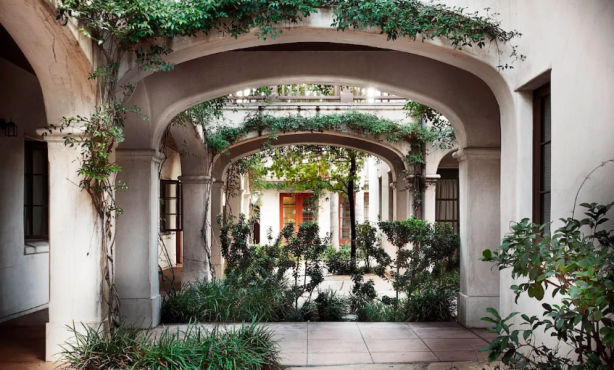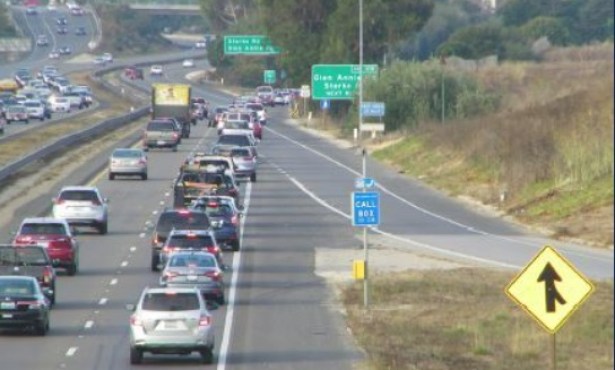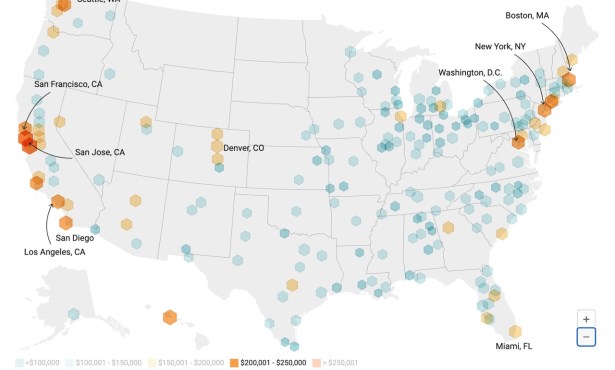Santa Barbara Neighborhood Rises Up Against ‘Fractional Ownership’ Property
Residents Speak Out Against Pacaso’s ‘Suspiciously Timeshare-Like’ Business Model

A new, “fractional” type of home ownership may have crept its way into Santa Barbara, raising the eyebrows of neighbors who say the business model is “suspiciously timeshare-like,” although the company’s website boasts a “modernized and simplified” practice of DIY co-ownership, outside of what is typically considered a timeshare.
The company in question is Pacaso, a new-age real estate startup that claims to have reached “unicorn” status: earning over a billion-dollar valuation within a year of launching. The startup’s website lists hundreds of prospective properties — stretching across the United States and overseas in Europe — offering the chance for “second home“ co-ownerships in which investors can own ⅛ of a home for as much as $2 million. Each home functions under its own LLC, in which co-owners can stay up to 44 days a year and are each free to sell their shares after one year.
Riviera neighborhood resident Don Vogt is leading the charge against Pacaso, after finding out a home on Las Alturas Road — right across the street where he and his wife take their daily walks — had come under new ownership. “I went over to introduce myself to the new neighbors,” Vogt said. “Come to find out it’s not one new owner but eight of them.”
The new occupants, he said, seemed excited about the company and talked about the great investment opportunities at Pacaso. Although he was curious, it wasn’t until later that Vogt realized that this might be a problem. “It took a little bit of time until it sank in,” he said.
He recalls one November evening, about a month after the property changed hands, when he heard a loud party at the location and went over to see what was happening. “This is a quiet neighborhood,” he said.
Vogt learned it was a 21st birthday party for the daughter of the occupant at the time, and said it raised alarms that they did not adhere to the company’s ownership code of conduct, which he later found out requires that “quiet hours are observed from 9 p.m. to 7 a.m.”
After looking up the company and the community opposition in at least 15 other cities — including St. Helena, Sonoma, and Napa — Vogt and his wife, Carolyn Vogt, began notifying neighbors and organizing their own opposition. He created bright-yellow “NO PACASO” signs to be placed around the neighborhood and encouraged others to get in touch with city leadership to push for a specific ordinance regarding this new type of “fractional ownership.”
Sign up for Indy Today to receive fresh news from Independent.com, in your inbox, every morning.
“We are doing as much as we can to get in their face,” Vogt said. While almost every city has a timeshare ordinance to prohibit hotel-like activity in single-family-residence zones, he added, many of these restrictions do not include Pacaso’s co-ownership model.
Pacaso maintains that regulations against short-term rentals and timeshares don’t apply to them, including the taxes these types of properties typically have to pay. In a lawsuit against the City of St. Helena, the company contends that it has “created a new and more accessible pathway for second home ownership by allowing co-owners to buy partial interests in real property,” and that it would not fall under the purview of timeshare ordinances. The main distinction between a timeshare and fractional ownership is that with a timeshare you buy the right to use a property, but with fractional ownership, you are buying a piece of real estate. A Pacaso spokesperson said the company believes the federal courts will ultimately reverse the application of timeshare ordinances to Pacaso.
The City of Sonoma took it a step further, snuffing out any new Pacaso properties by declaring an emergency order prohibiting both timeshare and “fractional interest uses.”
This comes at a time when Santa Barbara is facing its own housing crisis, and Vogt contends that this is just one of the few reasons that city leaders should follow St. Helena and Sonoma in being proactive before the company acquires additional properties. Pacaso’s website lists at least two more “prospects” in Santa Barbara, along with another Montecito property that has two more shares available for $1.29 million each.
“No neighborhood is safe,” Vogt said. He hopes that working alongside the Riviera Association and city leaders like Councilmember Kristen Sneddon will help bring this issue to the forefront before more properties are sold.
“Virtually everybody that we have told about this,” he said, “their first reaction is: ‘Isn’t that illegal already?’” Vogt worries that while on the surface it seems like the homes have new owners, this doesn’t help families in the city that need housing the most.
“They’ve taken a single-family home and turned it into a business, he said. “That house will never have a single family again.”
In an official statement to the Independent, Pacaso spokesperson Brian McGuigan said: “The average second home sits empty for almost ten months a year, which is a wasteful use of single family homes. Pacaso provides an alternative that allows multiple second home buyers to co-own one, high-end home rather than individually own multiple single family homes. We are confident this approach will benefit Santa Barbara and are prepared to meet with community leaders to answer any questions.”
Vogt encourages anybody looking for more info to visit stoppacasonow.com or email nopacaso@yahoo.com for details on how to reach out to city leaders.
Support the Santa Barbara Independent through a long-term or a single contribution.



